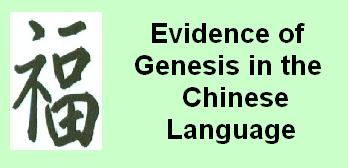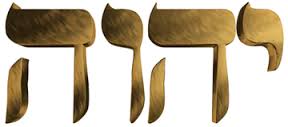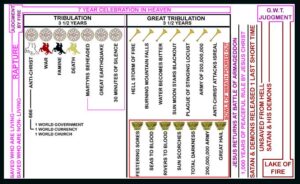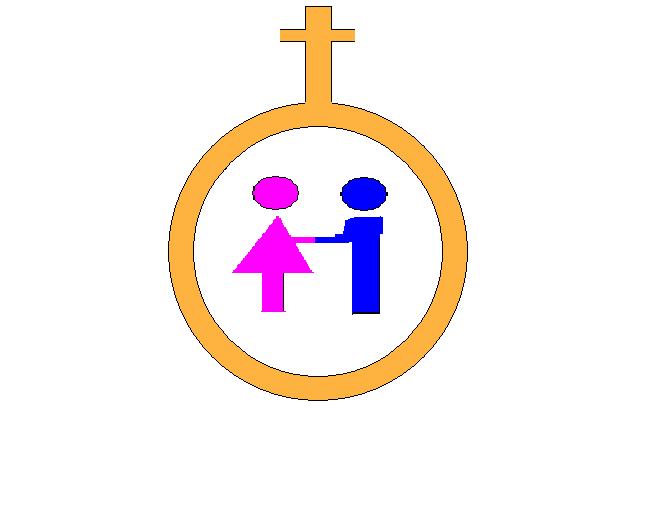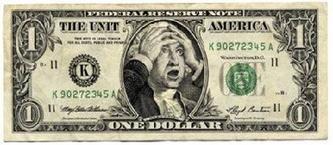Uncertain as well as multiple authorship, and several slightly varying texts are among the main reasons cited for Enoch not “making it” into the generally recognized canon. In truth, the spiritual agenda(s) of the early Roman Church is most likely the ultimate reason however, and we will examine this agenda here as well. Let’s begin with the first two though, before moving to the more incredulous, but quite valid “conspiracy theories.”
“The Book of Enoch, like the book of Daniel, was originally written in Aramaic, and partly in Hebrew (1).” While there may have been Hebrew translations during the centuries B.C. (which early church leaders may or may not have had access to), today only the Ethiopic manuscripts exist, as well as some incomplete Greek and Latin translations, plus one Aramaic fragment from the Dead Sea Scrolls. By the time of Jesus’ birth, “average” Jews were reading mainly the Greek Septuagint translation of their own Torah (completed 200 B.C.), as a result of their years of foreign captivity and then-current Roman occupation. To coin the vernacular, they had been assimilated. So unless an authentic Aramaic version appears miraculously today, there will never be any completely indisputable way to argue for a modern “canonization” of 1 Enoch, as the originals are lost, probably forever.
The honest problem facing the infant Roman Church of 390 A.D., when first assembling today’s Bible, was that the existing copies of 1 Enoch varied, albeit in minor ways. “Unlike the (rest of the) Bible which was carefully copied and checked for errors by Jewish and Christian scribes throughout its history, The Book of Enoch is available in a number of ancient manuscripts that differ slightly from one another… and many errors have crept in… There is no way of knowing which versions are (exactly faithful to) the original and which are the errors. While this doesn’t change its stories in any substantial manner, it does make it impossible to anchor beliefs or arguments on any given section… (4).”
Even to those who will rightfully argue that Enoch was unjustly banned, this alone IS a legitimate reason to exclude it from the holy writ. When faced with the task of declaring what is and what is not the “inspired, infallible Word of God,” erring on the side of caution and certainty must be the case every time! (Only those who do not believe in the divine inspiration, and modern integrity, of scripture will be dissatisfied with this reasoning. That topic is too far off the subject for this writing, but please at least read this before writing me nasty notes. Also, here’s a great site with a history of the English Bible from 500 B.C. to present, for those interested.) So, while 1 Enoch is almost beyond doubt an “inspired” text, the translated copies available (presumably) in 390 A.D., and especially those we have today, could not with any certainty also be classified as “infallible.”
Another less important but quite “legitimate” issue is that 1 Enoch is actually a collection of at least four different “books,” possibly written by various authors over many centuries, and possibly not by the true Enoch of Genesis 5.
The Artisan Publishers’ introduction to The Book of Enoch says “there can be no shadow of doubt” that there is a diversity of authorship and perhaps even time periods represented across the span of 1 Enoch, but that there is also “nonetheless, uniformity.” They attribute this to the very possible idea that as God raised up prophets (after Malachi…?), they published under the safety of a revered pseudonym, to avoid persecution and possible death at the hands of the religious powers-that-were, who wanted no “fresh words” from God (1). This could well be the case, but would make the book(s) of Enoch no less inspired of God if true. However, only the NT Book of Hebrews (written centuries closer to the Bible’s
assembly, with multiple matching manuscripts) has been accepted as canon with such uncertain authorship – without even a good solid guess agreed upon, that is.
Since “the real” Enoch of Genesis 5 was transported to heaven – permanently – it would be no stretch to imagine that it was also a normal experience during his lifetime. After all, the Bible says he walked with God for 300 years! (Genesis 5:22) The first 36 chapters (detailing the watchers’ fall) are sometimes only reluctantly attributed to Enoch (given their pre-deluvian history), but there are varying theories regarding the rest of the book(s). For much of the 1800’s, it was argued that the remaining chapters were actually the work of an early Christian scribe, but these claims were decisively put to rest with the discovery of the Dead Sea Scrolls, as were JT Milik’s claims that chapters 37-71 were Christian. Charlesworth says “The consensus communis is unparalleled in almost any other area of research; no specialist now argues that I Enoch 37-71 is (written by a first-century) Christian and (that it) postdates the first century… (2) and (5).” With this in mind, we must again face up to the very real dilemma of stating that that either the entire New Testament was “drawn” in a natural, secular way from 1 Enoch – with no supernatural inspiration – or that 1 Enoch and The New Testament are both from God.
It is also considered that possibly a single author assembled older prophets’ inspired works around 200 B.C. and simply added Enoch’s name to them all, to ensure widespread acceptance – “Hardly a practice that inspires confidence in the text (4).” But in reality, it is no secret academically that certain canonized OT books, as well as Mark’s gospel, may have been originally written by another – or even multiple – inspired author(s) and later were also assembled under the inspiration of God by a single author, who put either his own, or the original author’s name, to the work. For example, most agree that Moses actually wrote Job’s story from other existing texts (or that he knew him personally), before he even wrote Genesis. Most of the Major Prohets and historical books contain clear breaks in the time period, and were finally assembled many years later – as the author “was carried along by the Holy Spirit (1 Peter 2:21).” Christians need to get over the idea that “inspiration” means the writer went into some mystical trance, while God “possessed them” and wrote the Bible. Inspiration simply means they were obedient to God’s leading, and wrote what He said OR supernaturally revealed to them, or even that he guided their research, helping them discern truth from error, for the purpose of writing “an orderly account (Luke 1:3).”
Here, Luke states that his gospel was an extended research project!
In that vein, I.D.E. Thomas has recently suggested one other possibility perhaps not considered in academic circles before the 1986 publication of The Omega Conspiracy. “Thomas suggests that the compiler may have written his book from texts originally written by Enoch himself. In such a case it would make perfect sense for the compiler to attach Enoch’s name to the book for which he had provided the material (4) and (6).”
Even with all of this said, there is still no “clean” explanation for Enoch’s 1000-year disappearance from even popular literature though. Despite the above reasons for not canonizing the book, it is painfully apparent that the church did in fact supress The Book of Enoch. Only in studying both the goals and motives – positive and negative – of the Roman Church do the truest reason for Enoch’s “fall from grace” become apparent.
(But despite the arguments presented here, please note that I have no intention of bashing the early Roman Catholic Church. Always remember, they have done the world an incredible service by assembling and preserving God’s Word for the 1600+ years yet to follow. To make a distinction, the greatest sins and travesties they often stand accused – and guilty of – were
not the work or intent of the earliest Church fathers, but of the corrupt political system that grew up in the centuries after the Roman system’s formation. “It was not until hundreds of years later (5th – 7th centuries), that the first vestiges of this church government rose where there was a Roman bishop as the head of the Church, making it an official Roman Church
functioning similar to today’s.” (7))
Realistically however, there was also a “point” to the canon. The goal and even eternal function in assembling the earliest Bibles was NOT merely sorting out what was inspired of God and what was not. They also had the specific intent of promoting and preserving a solid doctrinal foundation for all believers in Christ. Like Paul, they had to passionately argue
against Gnosticism – “the doctrine of salvation by knowledge (8),” or the idea that gaining “superior” and/or “hidden” knowledge ensures one some higher spiritual position – opposed to a simple obedient faith in Christ.
Arguing for 1 Enoch’s “proper place” today, one (seemingly) Gnostic apologist states “Enoch had found and experienced God face-to-face, something which Gnostics strive for. The Church opposed Gnostics… Experiencing God was taboo… Putting a stamp of approval on such a wild tale (Enoch) would have too many people believing that they could experience
God for themselves, instead of going into a church and being told what to believe… Those who experienced visions or personal insights became dangerous to the church. They could lead people astray by supporting independent thought and actions (3).” It’s quite difficult to seriously consider this argument however, in light of the fact that a more common
criticism of Catholocism is that they “worship,” or at least perhaps TOO highly esteem, those who have had profound mystical experiences with God! For that matter, the Bible is NOTHING BUT a collection of “those who experienced visions or personal insights.” It would quite a thin book if all such stories were left out!
The truth is that Gnostics “strive(d) for” experiencing God without knowing and submitting to Christ or His Body, the church. Even today, the wish to “experience God face-to-face” without Christ’s mediation (1 Timothy 2:5) is not just an honest effort to avoid false religion (of which there is much), but to not submit to any spiritual authority at all – whether it
be God’s Church, God’s Word or even God’s Christ! It should always be kept in perspective that “the church” was not Rome’s, or even man’s idea. Jesus said “I will build my church, and the gates of hell will not prevail against it (Mt 16:18).” The early church rightly opposed Gnosticism, but beginning with Paul’s letters, not with the Roman Church. Many who
passionately promote (or just reprint and sell) 1 Enoch today do so not with the intention of promoting a deeper faith in God’s inspired Word, but more with the intent of undermining the Bible’s authority – and especially the church’s. 1 Enoch’s clear historical integrity but “lack of inclusion in the Bible” is often used to “springboard” arguments for other “favorite”
heretical books, left out for all the right reasons. Modern Gnostics are often fond of several other “gospels” (such as Thomas and Mary, both of which have statements and theologies that clearly contradict the more reliable works by John, Matthew, et al, proving they were NOT inspired by God). In short (oops – too late for that!), the typical Gnostic and New
Age arguments have nothing to do with why The Book of Enoch was not included in the Bible, or not preserved with other ancient works. (The true “reasons why” are actually more sinister…)
The forming church also had to publicly refute and stand against (from within!) the heresy of modalism, which in part suggests that Jesus Christ is a created being – eternal nonetheless, but inferior in substance to God the Father. The Council of Nicea was expressly interested in making sure that the doctrine of the Triune Godhead was clearly expressed by the canon, and especially that it would not be misunderstood by those who would read the Scriptures. Another “motive” was to refute “Pneumatomachians – who accepted the deity of Christ but said the Holy Spirit was an impersonal force… And so it was, and we are indebted today to a 4th century Luther that stood up to define the nature of Christ and God against a flood of falsehood (8).”
To be honest, in reading Enoch there seems to be in the multitude of heavenly trips a physical distinction sometimes made between The Father and the Pre-Incarnate Son. The phrases “Lord of Spirits” , “Ancient of Days,” and “Son of Man” are used so often (perhaps interchangeably, perhaps not) that even a careful reading sometimes infers the (doctrinally acceptable – 1 Cor 15:24) separation of the eternal Godhead. On earth, “… all the fullness of the deity” was present in Jesus Christ, “the image of the invisible God.” But 1 Enoch can at minimum cause confusion to the understanding of the Godhead – hard enough to grasp even today – in a way that other authors (Moses, Isaiah, Ezekiel, Paul and John) do not when speaking of their face-to-face encounters with God. (Did any gnostics still in the audience catch that phrase?) Even without the conflicting manuscripts or possible multiple authors coming into play (which careful examination of the rest of canon shows could have been worked out actually, if they so chose), I sincerely believe that if there was a legimate, excusable motive for not including Enoch in the Bible, this was it.
This does not excuse why we had to wait 1000 years to re-discover this book however.
So finally, with the general integrity of the Holy Scriptures, and the legitimate reasons the early Roman Catholic Church may have rejected 1 Enoch covered respectfully (and in a way palatable for modern Christian academics), let’s critically examine the real reasons behind the indisputable censure of 1 Enoch. There are many texts that – while not included as canon – have nonetheless retained their “postion of honor” and even reverence among the (Western) historical Christian church. Among these are the Apocrypha (still included of course in modern Catholic Bibles – and, just FYI, even included in the original King
James Bible), as well as The 12 Patriarchs, and writings too numerous to name by various “Church Fathers.” All of these have remained in a relatively high-profile position throughout church history, more or less available for both scholars and laymen to draw from when studying the ancient origins of the Christian faith. Not so with Enoch.
Yes, ANY of the above are certainly “good enough” reasons to have disqualified Enoch from canonization. But only assuming you wanted to in the first place …
With all of the evidence in, we have to own the fact that 1 Enoch was not merely “rejected for canonization.” It was buried. Flat out suppressed. It was quite intentionally lost to history, with all copies destroyed or left to rot 10 stories deep under the Vatican. Enoch was not merely “left out of the Bible.” It was dropped like a bad habit.
Okay, only for those who have come the distance, now let’s talk dirt…
Point blank, Origen was right. Enoch was suppressed and labeled as heresy specifically to hide the truth of the fallen angels’ past, present and future activity on earth.
Forget Roswell. Forget the X-Files. The most successful, enduring and damaging cover-up of “The Truth” about our planet’s frequent visitors – has come from within The Church.
Key to notes:
1) Artisan Publishers, The Book of Enoch (Ethiopic, Richard Laurence trans)
2) Chris Ward, D Min Return of the Watchers tape and/or his Enoch page
3) The Book Tree, The Book of Enoch (Ethiopic, RH Charles trans, Preface by Paul Tice)
4) Stephen Quayle, Aliens & Fallen Angels: The Sexual Corruption of the Human Race
(5) J.H. Charlesworth; The Old Testament Pseudepigrapha & The New Testament
(6) I.D.E. Thomas, The Omega Conspiracy
We first learn of Enoch in Genesis 5 but it leaves us with questions. Hebrews 11 has the
answers and Jude quotes Enoch! How did Jude come to know the words of Enoch? They are not in the Bible. The answer of course, is The Book of Enoch. A book which is actually quoted
not only by Jude, but also James the natural brother of Jesus.
The quote in (Jude 14-15) & (1 Enoch 1:9) is as follows: “In the seventh (generation) from
Adam Enoch also prophesied these things, saying: ‘Behold, the Lord came with his holy myriads, to execute judgment on all, and to convict all the ungodly of all their ungodly deeds which they have committed in such an ungodly way, and of all the harsh things which ungodly sinners spoke against him’.”
What is the Book of Enoch and where did it come from?
Enoch was the grandfather of Noah. The Book of Enoch chapter 68:1 “And after that my grandfather Enoch gave me all the secrets in the book and in the parables which had been given to him, and he put them together for me in the words of the book of the parables.” This makes it possible for the Book to have survived the flood as its not too hard to accept that Noah would have taken his Great Grandfathers writings with him onto the ark.
The Book of Enoch was extant centuries before the birth of Christ and yet is considered by
many to be more Christian in its theology than Jewish. It was considered scripture by many
early Christians. The earliest literature of the so-called “Church Fathers” is filled with
references to this mysterious book. The early second century “Epistle of Barnabus” makes
much use of the Book of Enoch. Second and Third Century “Church Fathers” like Justin Martyr, Irenaeus, Origin and Clement of Alexandria all make use of the Book of Enoch. Tertullian (160-230 C.E) even called the Book of Enoch “Holy Scripture”. The Ethiopic Church even added the Book of Enoch to its official canon. It was widely known and read the first three centuries after Christ. This and many other books became discredited after the Council
of Laodicea. And being under ban of the authorities, afterwards it gradually passed out
of circulation.
At about the time of the Protestant Reformation, there came to be a renewed interest in
the Book of Enoch which had long since been lost to the modern world. By the late 1400’s
rumors began to spread that somewhere a copy of the long lost Book of Enoch might still
exist. During this time many books arose claiming to be the long lost book and were later
found to be forgeries.
The return of the long lost Book of Enoch to the modern western world is credited to the
famous explorer James Bruce, who in 1773 returned from six years in Abyssinia with three
Ethiopic copies of the lost book. In 1821 Richard Laurence published the first English
translation. The famous R.H. Charles edition was published in 1912. In the following years
several portions of the Greek text surfaced. Then with the discovery of cave 4 of the Dead
Sea Scrolls, seven fragmentary copies of the Aramaic text were discovered.
The Book of Enoch is divided into five basic parts, but it is the The Book of Parables (37-71) which gives scholars the most trouble for it is primarily concerned with a figure called “the messiah”; “the righteous one”; “the chosen one” and “the son of man.” Chapter 46:1-2 [1] There I beheld the Ancient of days whose head was like white wool, and with him another, whose countenance resembled that of a man. His countenance was full of grace, like that of one of the holy angels. Then I inquired of one of the angels, who went with me, and who showed me every secret thing, concerning this Son of man; who he was; whence he was; and why he accompanied the Ancient of days. [2] He answered and said to me, This is the Son of man, to whom righteousness belongs; with whom righteousness has dwealt; and who will reveal all the treasures of that which is concealed: for the Lord of spirits has chosen him; and his portion has surpassed all before the Lord of spirits in everlasting uprightness.”
The opening verses of the Book of Enoch tell us that the revelations in this book were not meant for Enoch’s generation, rather a remote generation, and of course the book would
make more sense to the generations after Christ. We know that the early Church made use
of the Book of Enoch, but it was then all but lost, until recent times. Perhaps this book was meant for our generation, as it is widely available today after being concealed for over a millennia.
(Enoch 1:1-3) The words of the blessing of Enoch, wherewith he blessed the elect and
righteous, who will be living in the day of tribulation, when all the wicked and godless are to be removed. And he took up his parable and said -Enoch a righteous man, whose eyes were opened by God, saw the vision of the Holy One in the heavens, which the angels showed me, and from them I heard everything, and from them I understood as I saw, but not for this generation, but for a remote one which is for to come.

